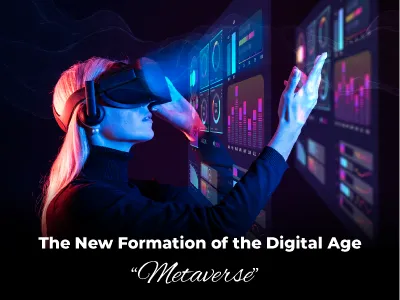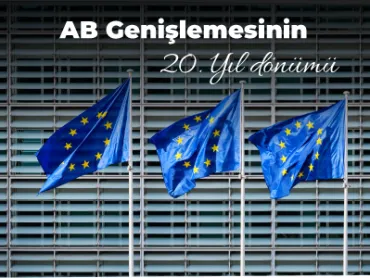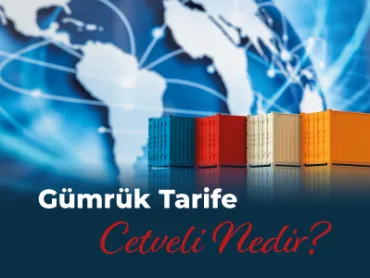
The Metaverse is a new phenomenon in the digital realm that everyone is curious about and has done a lot of research on. Many consider the Metaverse to be the future evolution of the Internet. Before going deeper into this topic, let's briefly discuss its historical background and development process.
"Metaverse," a combination of two words meaning "universe" in English and "beyond" in Greek, can be translated as "beyond the universe." The concept of the Metaverse first appeared in the science fiction book Snow Crash by Neal Stephenson about 30 years ago. However, the basis of this technology, which has attracted the most attention in recent years and is on the rise, represents a parallel virtual reality universe created from computer graphics. In this virtual universe, users worldwide can exist with the help of glasses and headsets. Since the topic of multiverses is highly debated and curious, especially among young people, the Metaverse is inevitably the most important reason why it is so popular among people. Metaverse, which offers a decentralized online universe that gathers, encompasses, and unites all these digital worlds in one place, looks like it will appear in many fields in the future.
Metaverse Technologies Creates New Opportunities
There is a lot of talk about the Metaverse being the next evolution of the internet. This technology will enable VR headsets to transport you into entirely new environments, one day projecting the world around you as computer-generated images. This technology encompasses a range of innovations, including mixed-reality experiences that blend physical and virtual environments. This will give you a more immersive 3D experience where you feel you are next to another person or place.
Growing Momentum for VR Education Tools in Europe
In Europe, there are also signs that educators are embracing Metaverse technologies. As part of national education investments in Italy, schools can integrate immersive experiences into their lessons with digital and virtual technologies. Also in Italy, the University of Camerino will host its first class to be conducted entirely in the Metaverse in the coming semester, with students and instructors able to participate via VR headsets.
In this sense, Europe is home to a growing industry developing educational applications and software for Metaverse technologies.
- In Germany and Austria, GoStudent is revolutionizing language learning through virtual reality. With GoVR foreign language classes, students can immerse themselves in virtual learning environments that simulate real-life settings. These environments allow students to interact live with native English-speaking instructors and classmates from across the country.
- In Italy, Itaca Education is working with teachers to develop virtual learning experiences in subjects such as natural science and physics. This way, students can immerse themselves in science labs filled with equipment that most schools could never afford.
- In the UK, Noun Town offers an award-winning educational app that uses gaming to take the challenge out of learning new languages, including Japanese, Korean, Spanish, French, Italian, German, and Chinese.
Changing Trade Environment
The COVID-19 pandemic has dramatically accelerated the implementation of virtual experiences and online shopping, making customers more open to commerce in the 'Metaverse' than before 2020.
İn this context the Metaverse is expected to deliver more immersive and interactive shopping experiences and create creative opportunities for brands in how they engage with their buyers. With this technology, customers will be able to explore virtual stores, try on clothes and interact with products in a way that is not currently possible on traditional e-commerce websites. This is expected to lead to both better brand relationships and increased sales for B2B and B2C businesses.
Of course, new opportunities for social commerce are also likely to emerge. In the Metaverse, customers can interact with each other, share recommendations, and build communities around products and brands. This is expected to increase word-of-mouth marketing and create new opportunities for businesses to create customer-centric experiences.
While interest in the Metaverse was high in the last quarter of 2021, it declined around March 2022. This suggests that the initial excitement around this new channel has diminished significantly. However, Metaverse is still viable. "With the potential to create up to $5 trillion in value by 2030,the Metaverse is too big for companies to ignore," Mckinsey said.
 Back
Back







